Facts of the Maghreb
Uncover Fascinating Facts About the Rich Culture, History, and Landscapes of the Kingdom

The University of Al-Qarawiyyin, located in Fez, Morocco, is recognized by UNESCO and the Guinness World Records as the oldest existing, continually operating higher educational institution globally. Founded in 859 AD by Fatima al-Fihri, it became a significant spiritual and educational center in the Muslim world

Chefchaouen, nestled in the Rif Mountains, is renowned for its striking blue-painted buildings. The tradition of painting the city blue is believed to have been introduced by Jewish refugees in the 15th century, symbolizing the sky and heaven, and serving as a reminder to lead a spiritual life.
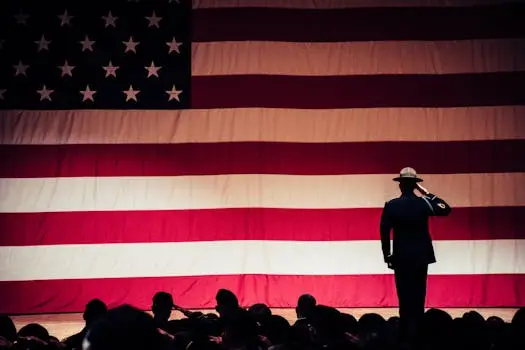
In 1777, Morocco became the first country to recognize the independence of the United States from Great Britain. This early recognition led to the Moroccan-American Treaty of Friendship in 1786, which remains the longest unbroken treaty relationship in U.S. history.
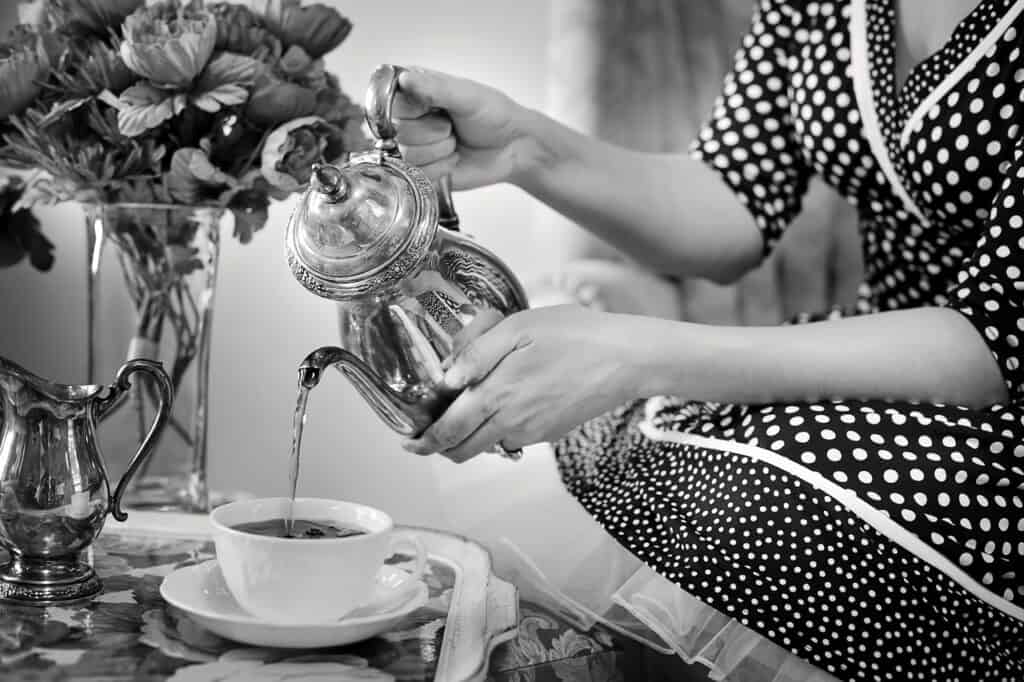
Known locally as ‘Atay,’ Moroccan mint tea is a staple of hospitality. Traditionally prepared with green tea, fresh mint leaves, and sugar, it is ceremoniously poured from a height to create a frothy ‘crown’ on the tea, enhancing its flavor and aroma.

Morocco’s official languages are Arabic and Amazigh (Berber). Due to historical ties, French is widely used in government, commerce, and education. In northern regions, Spanish is also spoken, reflecting past Spanish influence.
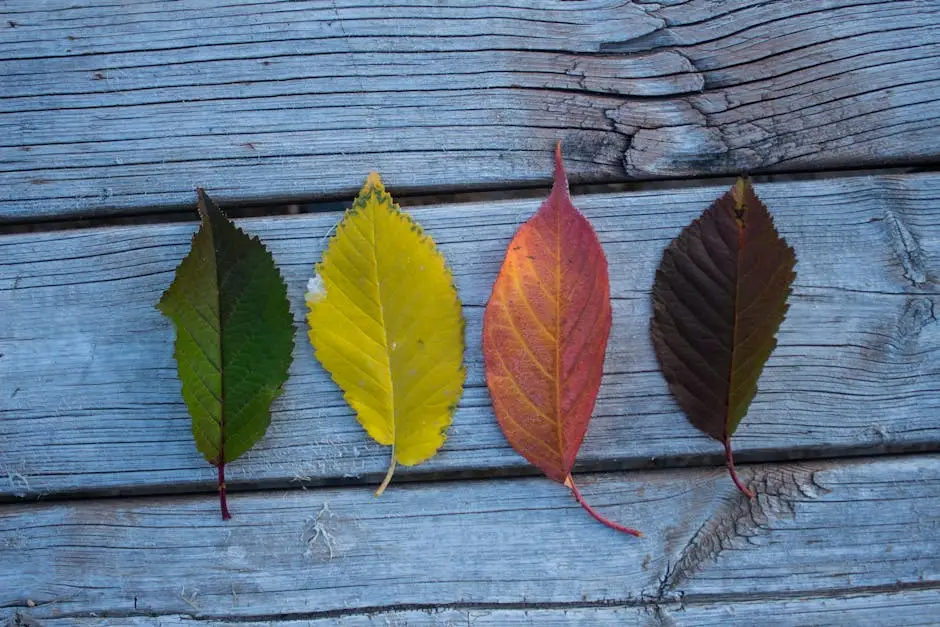
Morocco’s diverse geography allows one to experience various climates within a single day. It’s possible to ski in the snow-capped Atlas Mountains in the morning, explore the Sahara Desert’s dunes in the afternoon, and relax on Atlantic or Mediterranean beaches by evening.
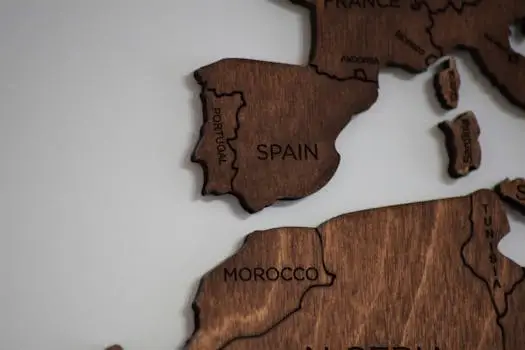
Morocco uniquely boasts coastlines along both the Atlantic Ocean to the west and the Mediterranean Sea to the north, offering a variety of coastal landscapes and maritime activities.

The Moroccan Sahara features some of the world’s largest sand dunes, such as those in Erg Chebbi near Merzouga, which can reach heights of up to 150 meters (approximately 500 feet).
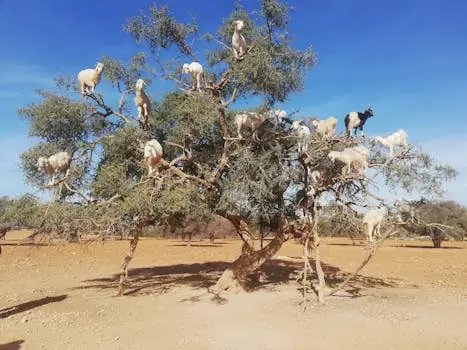
In the Souss-Massa region, goats climb argan trees to eat the fruit. The indigestible nuts are then excreted, collected, and processed to produce argan oil, a valuable commodity used in culinary and cosmetic products.
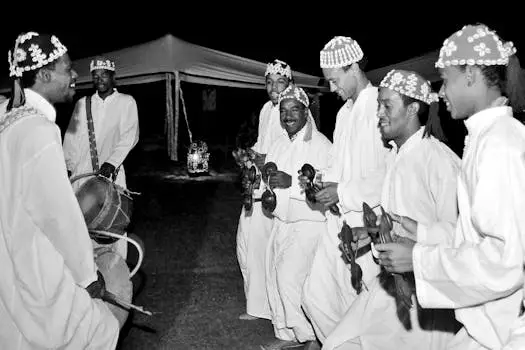
Gnawa is a rich musical and spiritual tradition combining African, Berber, and Islamic rituals. Originating from enslaved West Africans, it features hypnotic rhythms, chants, and dances, often performed during all-night healing ceremonies called ‘lilas.’
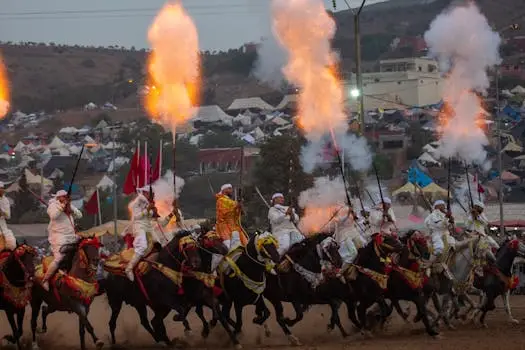
Tbourida, also known as Fantasia, is a traditional equestrian performance that simulates a cavalry charge. Riders in traditional attire gallop in unison and fire old muskets into the air, showcasing their horsemanship and the historical significance of cavalry in Moroccan culture.
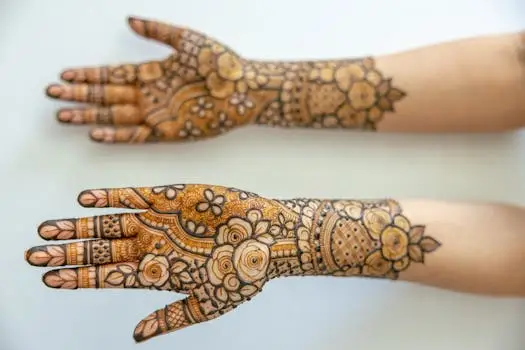
Henna, derived from the Lawsonia inermis plant, is used in Morocco for body art, especially during weddings and festivals. Intricate designs are applied to the hands and feet, symbolizing beauty, joy, and spiritual protection.
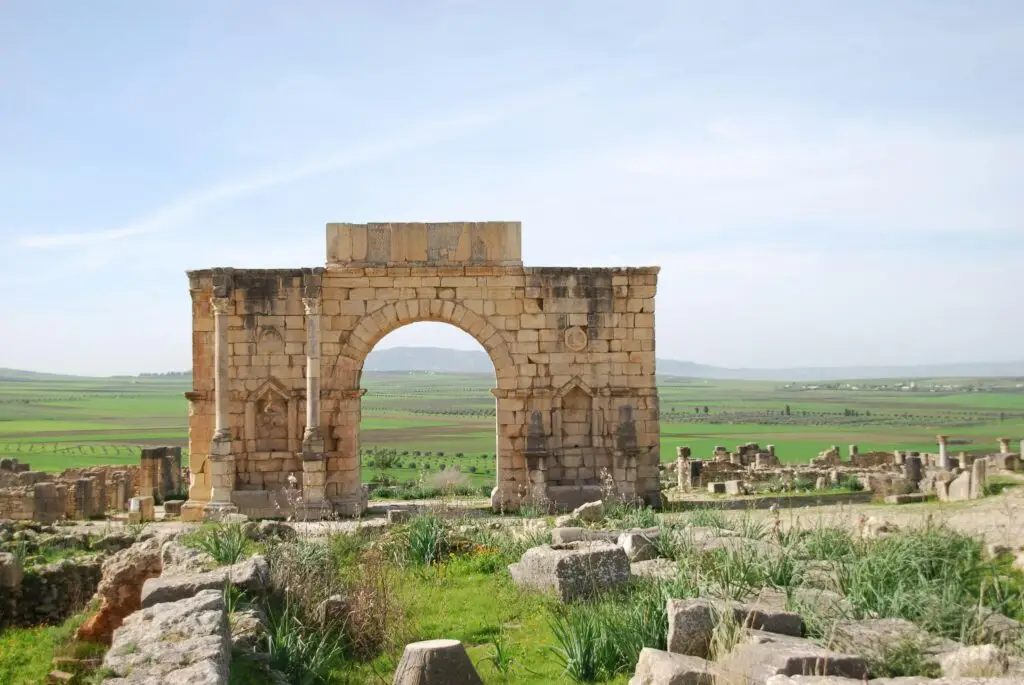
Near the city of Meknes lie the well-preserved ruins of Volubilis, a UNESCO World Heritage site. This ancient Roman city features impressive mosaics, basilicas, and temples, showcasing Morocco’s historical ties to the Roman Empire.
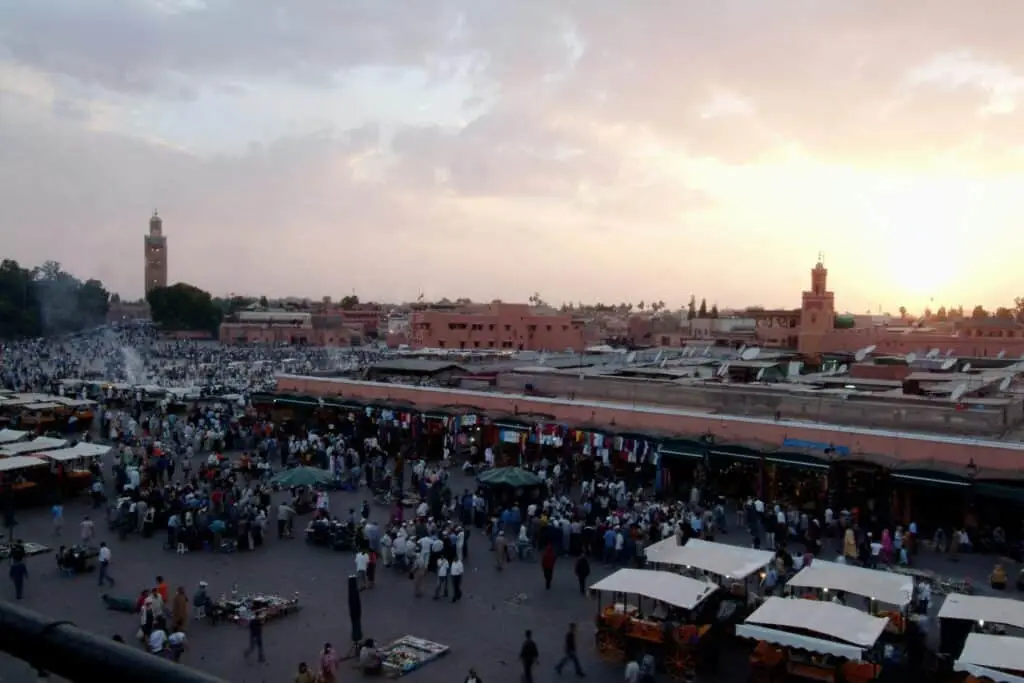
Located in Marrakech, Djemaa el-Fna is one of the world’s most famous public squares. By day, it’s a bustling market; by night, it transforms into a vibrant hub of storytellers, musicians, and food stalls.
